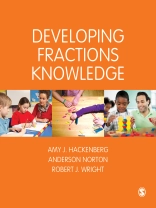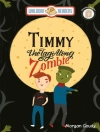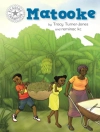Supporting and understanding your students’ fractional knowledge is crucial to their overall grasp of numbers and mathematics. By centralizing around three key stages of development, this effective guide will help you to assess your students’ understanding of fractions and modify your teaching accordingly.
These key stages are identified as:
- Stage 1a: Fair Sharing
- Stage 1b: Part-Whole
- Stage 2a: Disembedding and Iterating Stage 2b: Measuring with Unit Fractions
- Stage 2c: Reversing Fractions
- Stage 3a: Fractions as Numbers
- Stage 3b: Operating with Fractions
Зміст
Introduction
Professional Learning and Three Grand Organizers for Arithmetic Instruction
From Whole Numbers to Fractions
Assessing Stages of Units Coordination
Teaching Students at Stage 1: Fragmenting
Transitioning to Stage 2: Part–Whole Reasoning
Teaching Students at Stage 2: Measuring with Unit Fractions
Teaching Students at Stage 2: Reversible Reasoning
Teaching Students at Stage 3: Fractions as Numbers
Teaching Students at Stages 2 and 3: Equal Sharing of Multiple Items
Teaching Students at Stages 2 and 3: Multiplying Fractions
Teaching Students at Stages 2 and 3: Adding and Subtracting Fractions
Teaching Students at Stages 2 and 3: Dividing Fractions
From Fractions to Algebra
Про автора
Dr Robert J. (Bob) Wright holds Bachelor’s and Master’s degrees in mathematics from the University of Queensland (Australia) and a doctoral degree in mathematics education from the University of Georgia. He is an adjunct professor in mathematics education at Southern Cross University in New South Wales. Bob is an internationally recognized leader in assessment and instruction relating to children’s early arithmetical knowledge and strategies, publishing six books, and many articles and papers in this field. His work over the last 25 years has included the development of the Mathematics Recovery Program, which focuses on providing specialist training for teachers to advance the numeracy levels of young children assessed as low-attainers. In Australia and New Zealand, Ireland, the UK, the USA, Canada, Mexico, South Africa and elsewhere, this programme has been implemented widely, and applied extensively to classroom teaching and to average and able learners as well as low-attainers. Bob has conducted several research projects funded by the Australian Research Council including the most recent project focusing on assessment and intervention in the early arithmetical learning of low-attaining 8- to 10-year-olds.












